Working in and around revenue cycle technology for so long, we often communicate about features and benefits in shorthand. With so many different types of health information solutions, ownership models, service lines and so forth, sometimes we talk about things in an unknown, or jargon-y language without even realizing it.
Take charge reconciliation as an example. At medaptus this means the act of confirming that for every visit and/or service delivered, a charge exists. When it doesn’t, this is evident and actionable. Charge reconciliation is vital to all of our products.
Sounds simple, but it isn’t. For example, what happens when a visit isn’t a scheduled appointment but rather, a hospital admission. These are typically unplanned and with uncertainty around end dates.
Because hospital charge reconciliation involves uncertainty and often a team of caregivers, it is an area ripe for revenue loss. For larger hospitals with high medical floor volume, this can be anywhere from 3-6% of revenue left on the table.
Find that hard to believe? Consider the admission that starts just before midnight. Who is responsible for the first charge? What if the H&P is done but the provider goes off call for the next week without submitting? Despite great electronic health record technology, these charges still fall through the cracks.
And this is precisely the role of hospital charge reconciliation: to ensure that for every professional medical service provided, a charge is recorded. On the simplest level, this can focus primarily on hospital medicine providers. More complex systems also apply charge reconciliation to ancillary services to ensure no high volume/low reimbursement loss occurs.
What are ideal components of a strong hospital charge reconciliation solution?
- Scheduling data from a group’s practice management system, ADT information from the hospital(s) or provider documentation events create intuit chargeable opportunities
- Each opportunity is viewable in a calendar grid across the doctor, location and/or group affiliation; this eases identification of missing and no-charge situations across a patient’s entire hospital stay
- Coding accuracy is reviewed simultaneously; clean charges are queued for billing while charges that fail validation are held for supervisor review or documentation checking
- Embedded messaging between business and clinical staff enable faster issue resolution since problems can be directly communicated to a responsible provider in near-time
- Reporting capabilities that can identify missing charges or open opportunities along with a system of alerts to enforce timely filing guidelines act as a safety net
- Custom rules such as payer alerts that prevent denials before they can even happen in the first place
It’s true that hospitals and other provider groups that implement a robust charge reconciliation are simply getting paid for services that were already delivered, but for whatever reason – due to human error, lack of understanding, disparate information systems and spreadsheets, too many handoffs, – reimbursement suffers and in this era of post-COVID recovery, every dollar is needed.
Interested in learning more about medaptus’ capabilities in this area?
Get the latest updates and news delivered to your inbox.
Subscribe to our newsletter today.





